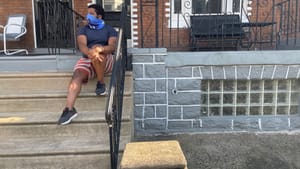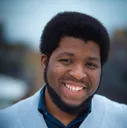Stay in the Loop
BSR publishes on a weekly schedule, with an email newsletter every Wednesday and Thursday morning. There’s no paywall, and subscribing is always free.
Masking our problems
As normality attempts to return, mask-wearing arguments often miss the truth

Here we are in the second summer of Covid-19 and little has changed. Over the past 15 months, we’ve ridden the waves. There were the ominous first weeks of quarantine, when we knew little about the virus; the fading promises of “returning to normal” in the summer; the fervent push for justice after police officers killed George Floyd, Breonna Taylor, and many more; and the seemingly more urgent push to reopen the world in September. Holiday plans were cancelled, Election Day was a long, anxious month, and soon people forgot about how Black and brown people were dying daily at the hands of white supremacists. But hey, at least we’re still wearing our masks, right?
New normal is ahead of schedule
Philadelphia lifted most of its Covid-19 restrictions on June 2, 10 days ahead of its initial plan. As of mid-June, 69 percent of Philadelphians are partially vaccinated, and 54 percent are fully vaccinated. The indoor mask mandates were lifted quietly just days ago. We’ve had Sixers games with full (and rambunctious) crowds, restaurants have folks sitting outside and inside, and events are happening indoors. Personally, alongside many others, I’ve been growing comfortable not wearing masks outdoors. While it’s been nice having the sun kiss my whole face these last few weeks, I can tell there’s something hanging in the air.
Last year, I wrote about my reservations about returning to normal too fast. Memorial Day weekend 2020 looked much like this year’s edition, which is telling. At the time, we knew so much less than we do now, and yet collectively, there was disregard of the regulations and restrictions. Agitation, fatigue, and cabin fever had settled in, leaving many people restless, anxious, frustrated. I’m not here to judge anyone’s actions or feelings, and in retrospect, I have some empathy. But if in the face of a pandemic, Americans said “fuck it” back then and kept going on with their lives, it’s the same attitude now.
Can you blame them? Yeah, you can blame some of them.
Are masks the problem?
The pandemic unveiled systemic issues that had been hiding in plain sight. We’re overworked and underpaid. We still don’t have universal healthcare. Businesses, organizations, and even the arts continue to mine Black and brown cultures for their trauma. Disabled people, trans people—anyone not white, cis, het, and abled—are still treated like lesser human beings. Folks still think racial justice is a political issue and not a human rights issue. We fought hard for a minute, but then people resigned. Either the mountain is tall to climb or the hashtag stopped trending—it’s a spectrum, perhaps. The new flashpoint has become the masks we’re choosing to wear (or not wear).
Masks aren’t our only problem, and listening to the way we critique others who are or aren't wearing them only gets at the surface. The choices we make around wearing masks may be poorly grounded. Misinformation and disinformation can play a part here. Deliberate ignorance is something else. None of them are excuses for not wearing masks in situations where health officials still recommend them. However, this essay isn’t a plea for people to keep wearing masks, either. I’m looking beyond that debate because these conversations feel uncomfortably familiar to me, as someone who has long been judged (in passing and in personal circles) by people who uphold stereotypes and assumptions based on my skin—something I can’t put on or off.
The nuances to this reveal bigger, more emotional and interpersonal issues that Americans have. In many cultures, wearing masks isn’t new. It comes out of courtesy and respect for others’ well-being. There’s humility that comes with wearing one: it’s admitting that you might be ill or might put others at risk, something that Americans have trouble accepting for themselves (we’re immortal, and it’s every man for himself, you know?). And for some cultures, wearing a mask isn’t even always about health.
What we can’t take off
A February 2014 Japan Today article quotes a 46-year-old mother who wears a mask every day in the winter to prevent illness, but says her teenage daughter wears one “‘and sticks headphones in her ears so that people won’t bother her. It makes it harder for them to start talking to her.’” The article also notes that a surge in masks’ popularity in the 2000s and 2010s “isn’t entirely the result of a desire to give people the cold shoulder. On the contrary, an increasing number of people are using masks because of their desire for warmth” during winter months. Masks have also become fashionable accessories, or a way to avoid putting on makeup for quick errands.
We can’t see what’s happening beneath the mask. We can make assumptions about people who wear or don’t wear masks, but we can’t know for sure. For some people, assumptions and discrimination will continue beyond our little pandemic mask-wearing phase.
Americans have depended on social cues, categorization, stereotypes, and other devices to perceive the people around us. These devices bring shallow, uninformed answers to questions we don’t really know how to ask. They feel like a means to more clearly align ourselves with what is “right,” and in this case, depending who you are, the only “right” is to wear a mask…or not wear one. This dismisses any opportunity for empathy, for conversation, and for understanding other people’s perspectives and needs.
I still wear masks around groups of people. I still have reservations about travel and indoor events not only because I’m still wary about Covid-19, but also because I’m concerned that the progress we talked about will ultimately die. I’m wary about how I will be judged even deeper for wearing a mask when I’m sick or for warmth in the winter. I’m wary that mask-wearing will widen the social chasm that divides Americans, one that often sparks discriminatory behavior, violence, and even death. Now more than ever I’m concerned for my body, and not because of a virus or a mask, but because I’m thrust into a world with another marginalizing mark that I don’t want to shed.
Image Description: Kyle, a Black person in his thirties, sits on the front steps of a house, wearing a blue mask, looking to his right.
Sign up for our newsletter
All of the week's new articles, all in one place. Sign up for the free weekly BSR newsletters, and don't miss a conversation.

 Kyle V. Hiller
Kyle V. Hiller